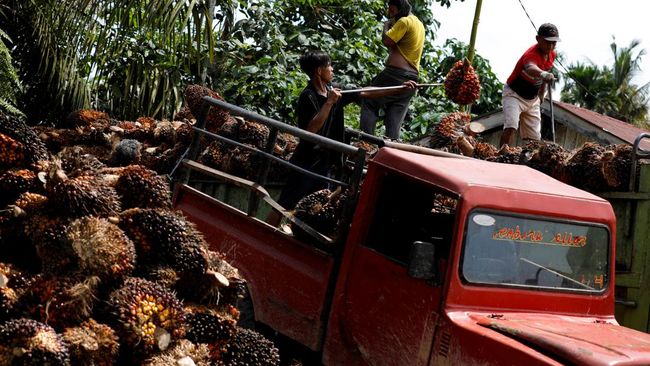Jakarta, CNBC Indonesia – The price of crude palm oil (CPO) was observed to weaken 0.48% at the level of RM 6,369/ton for three-month futures contracts on the Bursa Malaysia Derivative Exchange.
The price of CPO had penetrated RM 7,000/ton. At that time, the Indonesian government banned the export of CPO because of the very significant increase in cooking oil prices.
Although the aim is to stabilize prices, this policy has its pros and cons. Several analysts and economists estimate that with the ban on CPO exports, Indonesia could lose US$ 2 billion in export value.
Head of the Fiscal Policy Agency (BKF) of the Ministry of Finance (Kemenkeu) Febrio Kacaribu said that he would continue to periodically evaluate the economic impact of the ban on exports of raw materials for cooking oil, CPO and its derivatives.
c
After the policy was implemented, the price of cooking oil in the market gradually fell. However, behind the decline in cooking oil prices, there are oil palm farmers who have to bear huge losses.
The price of palm fruit bunches (FFB) for farmers continues to fall by up to 50% due to the ban on CPO exports. Farmers suffer heavy losses and fruit stocks are threatened with rot.
Indonesia is the largest palm oil producer in the world. Therefore, the decision taken by the government regarding the ban on CPO exports will have an impact on the global market.
Then in terms of price, CPO performance tends to stagnate in terms of returns. However, price volatility in the CPO market remains high in line with the strengthening of crude oil prices.
CPO is one of the ingredients used in the process of making cooking oil. On the other hand, CPO prices were also helped by the movement of crude oil prices.
As is well known, CPO and crude oil prices have a positive correlation. This means that when the price of crude oil will be responded to by an increase in CPO prices.
Next Article
Climbing the Mountain Through the Valley, Palm Prices Continue to Rise!
–
–
(Cha Cha dance)
–


